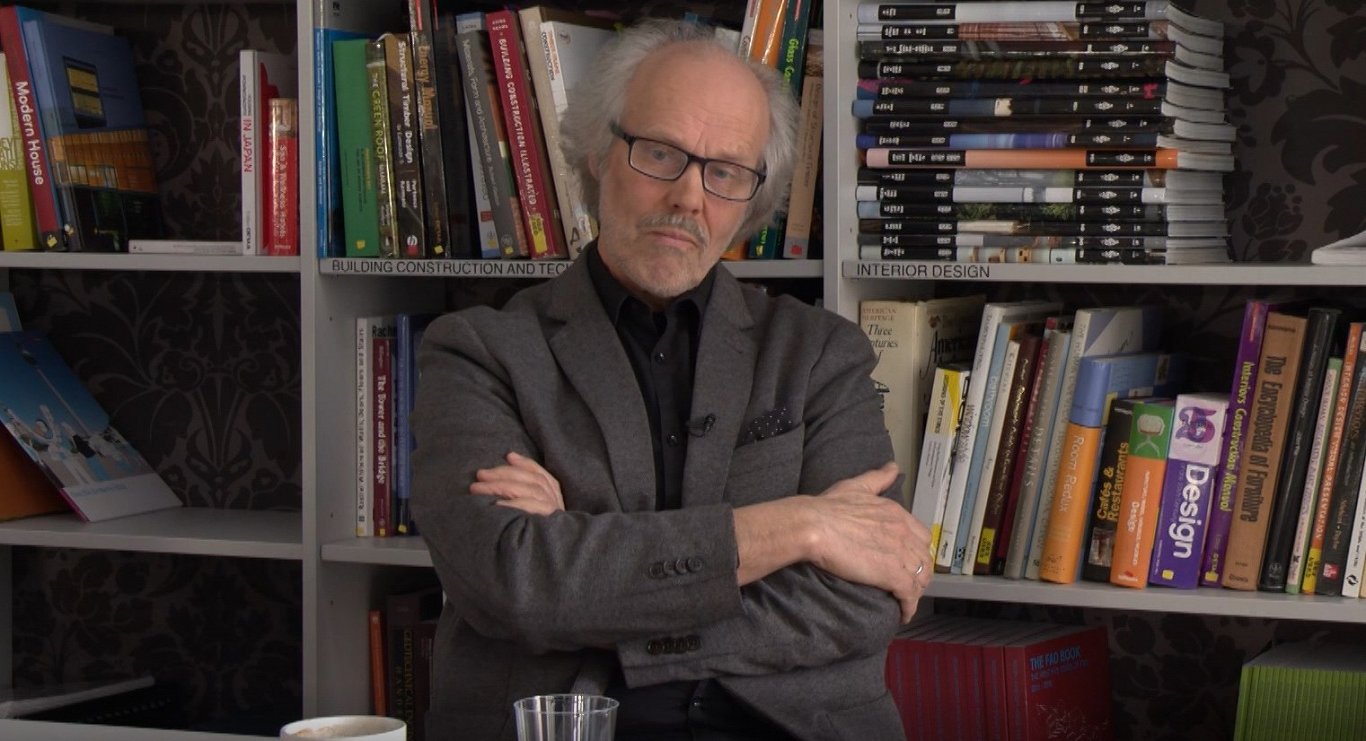He has penned more than 300 pieces on architecture on culture, as well as co-authored a monograph on the history of Latvian architecture. In addition, the has received the Order of the Three Stars, Latvia's highest civil decoration, as well as the Order of the Polar Star in Sweden.
Most recently, however, a card bearing his name has appeared in the KGB archives published late last year, and Dripe has agreed to share his views on the intelligentsia's ties with the Soviet repressive apparatus:
"In a broader context, this is a discussion about cooperation between the creative intelligentsia and the authorities. There were no pronounced dissidents in the creative intelligentsia. There was no [anti-Soviet dissident] Gunārs Astra to be found among us. We had adapted to the rules of the powers that be.
Today we could say, proudly, that we played the game in a smarter way. We didn't, so to speak, try to jump in front of a bullet. We sort of preserved our intellectual potential, but it was collaboration all the same.
Many of us had different lofty-sounding titles. Many were "Accomplished Artists of the Latvian SSR". The authorities continued to flirt with the creative intelligentsia very smartly, giving them supposed privileges that at the time seemed self-explanatory and well-earned.
It was, however, a compromise of a kind, and selling one's soul.
As a young man, I received a Latvian SSR State award in architecture for designing the monument in Valka's Brethren Cemetery. All of the soldiers were underground. You couldn't say who had been a liberator, an occupier, or an invader.
However, it is in fact putting up with a situation. You accept rules of some sort. Of course, if someone has fallen on the battlefield, it is unethical to separate them no matter what side they fought on. But someone who has suffered from this power is in fact entitled to say that an important border has been violated and that it's a compromise, that it's conformism.
Men such as [poet sentenced to a prison camp] Knuts Skujenieks -- who have suffered the most from the regime both physically and mentally, have the most truthful look at the situation. They aren't longing for a reckoning, for blood.
It is a telling fact, which allows me and many colleagues to look at the current events more philosophically and peacefully.
There's a view that small nations are unable to survive without collaborating with the occupation regime, and if there wouldn't have been collaboration between the KGB and the intelligentsia, there wouldn't have been anyone to carry out the National Awakening.
I tend to agree. As an architect, I could say, in order to excuse the actions of the national intelligentsia, that it's as if a small brick in the house we all want to build.
[..]
Just as any nation has a set percentage of people who will lead a life of crime, we have to put up with this situation as well, as it's for that there are laws and prisons, and there's likely to be room for manipulation. Some people think that today the processes are the same, not different in any way.
It's important to note that we had a free state for only 22 years of the inter-war period. It's much too short a stretch for us to become stable and invulnerable.
Currently, 30 years have passed, and it's likewise not a huge guarantor, and it's educational knowing this all from such an aspect.
Yes, there is a justification for collaboration. We had lost a great part of our intellectual potential. I know that 75% of the architects left the country. They were well-educated and situated, and they knew clearly that they'd be deported sooner or later, that repressions are to come.
Therefore in a way you can agree to the proposition that the creative intelligentsia was able to survive by striking a compromise with the authorities, and in this way it preserved the nation's intellectual capacity that was to reveal itself so vividly during the National Awakening when it played a very substantial role.
[..]
Yes, maybe it was God's wisdom, which we don't speak of loudly but which was perhaps important for the survival of the nation, as we had lost so much, we had lost hundreds of thousands of people, the nation had been impoverished already.
Why are there so many people important for Latvian culture in the Cheka bags?
It must be understood that socially active people who did things important for the nation attracted the interest of these [secret] services. In a way, it was an indicator: if they spoke to you and were interested in your opinion, it meant you were doing something important. I might add that this doesn't apply to people who simply wanted to build a career by cooperating [with the KGB]. May it remain on their consciousness.
But there are people who came to the attention of these services for the very fact that they were doing something important for the nation. The authorities wanted to know what nationally important minds were thinking, and the methods they employed were very diverse.
Currently it's important to evaluate all this, comparing the processes with other countries like post-Franco Spain, Germany, and the way the Estonians and Lithuanians are doing it. But this is a job that must be done. A nation that does it consequently and swiftly is a strong nation. We weren't strong and have only arrived at this situation after thirty years of stumbling again and again. Hopefully, this will not be the case in the future.





























